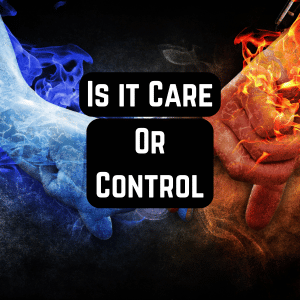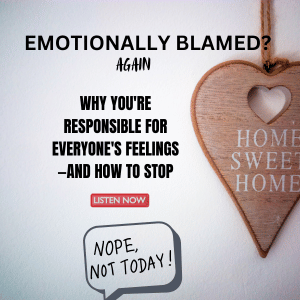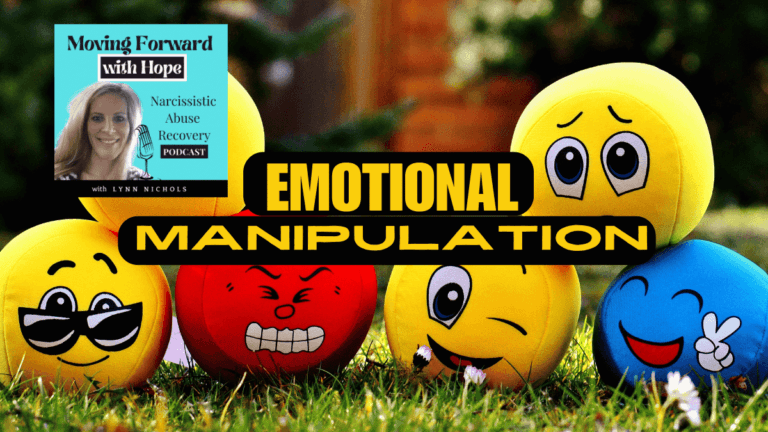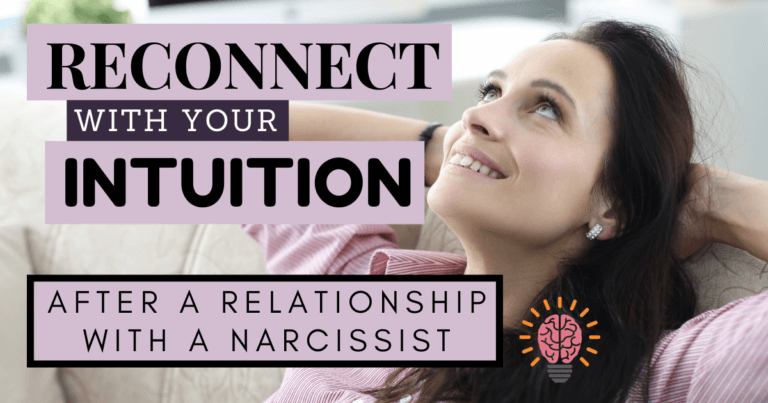The Hidden Difference Between Supportive Partnership and Emotional Control
When care becomes control?
Follow our work beyond the podcast: We publish essays and insights on Medium through our Moving Forward with Hope publication, and you can also find additional content and community updates on our Substack. Join us there to go deeper, connect with others, and support the movement.
The following is a transcript from the Narcissistic Abuse Recovery Podcast
Podcast: Narcissistic Abuse Recovery Podcast
Host: Lynn Nichols
Are we teaching silence?
Lynn is a heartfelt advocate for personal growth and empowerment, and writes with raw insight on navigating narcissistic abuse, toxic relationships, and sometimes the societal challenges tied to the patriarchy. With a deeply experiential approach, her stories shed light on the emotional complexities of breaking free from toxic patterns and reclaiming one’s voice. L.N. offers fresh perspectives on gender dynamics, self-worth, and healing, encouraging readers to rebuild from within and revolutionize their relationships.
Lynn is also a trauma-informed narcissistic abuse recovery coach and podcast host. She creates videos on her YouTube channel to bring the message of healing and recovery. Learn more on her website here.
Picture this… You’re in a relationship where someone takes care of everything for you. They handle the finances… make the big decisions… always know what’s best for you. On the surface… it looks like love. But something feels… off. You can’t quite put your finger on it… but you feel smaller… more dependent… less like yourself.
Maybe you’ve experienced this… or maybe you’ve witnessed it in someone you care about. That nagging feeling that something isn’t quite right… even when everything looks perfect from the outside.
Welcome back to the Narcissistic Abuse Recovery Podcast, I’m Lynn your Host. Right around episode 85 our podcast was renamed to the Narcissistic Abuse Recovery Podcast formerly Moving Forward with Hope – Narcissistic Abuse Recovery Podcast. Be sure you are subscribed to our podcast.
Today we are going to talk about something that may completely shift… how you see certain relationships in your life. We’re diving deep into the hidden mechanics of how care—genuine, loving care—can sometimes get twisted into patterns of control.
And here’s what’s important to understand upfront… this isn’t about judging relationship arrangements or traditional roles. Many couples thrive in partnerships where one person handles finances, another manages the home, or where roles are divided in ways that work for both people. The issue isn’t WHO does WHAT… it’s HOW these arrangements are established and maintained.
What we’re focusing on today are control patterns that can show up in ANY relationship dynamic… regardless of gender roles or who’s in charge of what. These patterns can emerge gradually, often without anyone realizing it’s happening.
Listen to Episode 93 and the Article: The Patriarchy’s Perfect Trap – You Decide
Our goal isn’t to attack anyone or any relationship style. It’s to help you recognize when care crosses the line into control… so you can make informed choices about your relationships and ensure your partnerships are built on mutual respect rather than dependence.
By the end of this episode… you’ll understand how these patterns show up… why they can feel so normal… and most importantly… how to recognize the difference between supportive partnership and emotional control.
We talk fast in our episodes. At times, my philosophy is you are busy and I am busy, so we want to get to the meat and the heart of the issue or issues without taking all day to get there. Your time is valuable and so is mine, so we write our scripts, research and I write the scripts again to condense the information. Yet at times, it can be packed with a lot of information in one sentence. I recommend if this is you, to download our episode, save it, and listen to it again. Download our show notes, save it to a folder so you have time to fully digest the content of the message.
- We’ve updated (and still are updating) our podcast episode titles, descriptions, and links—many titles now include episode numbers. We are adding in subtitles and updating descriptions on our older episodes. If you’ve saved or shared direct links, please double-check they still work.
SEGMENT 1: DEFINING THE LANDSCAPE
What We Mean When We Say Control Patterns in Caring Relationships
Let’s start with what we’re actually talking about here. When we say “control patterns in caring relationships”… we’re not talking about relationship roles or arrangements. We’re talking about behaviors and dynamics that can happen in any type of partnership.
These patterns can develop in relationships where one person is the primary breadwinner, the stay-at-home parent, the financial manager, or the decision-maker. The arrangement itself isn’t the problem… it’s when that arrangement becomes a tool for control rather than a mutual choice.
Here’s what’s crucial to understand… healthy relationship arrangements—whether traditional or non-traditional—are built on mutual agreement, respect, and the ability to renegotiate. Both people maintain their voice, their autonomy, and their individual identity within whatever roles they’ve chosen.
Control patterns, on the other hand, emerge when one person uses their position—whether as provider, caretaker, or decision-maker—to diminish the other person’s agency, voice, or independence.
The key difference between supportive partnership and control patterns… is choice, communication, and respect. Supportive partnership asks “What works for both of us?” Control patterns operate from “I know what’s best for you.”
Think about it this way… in healthy arrangements, both people feel empowered within their roles. In control patterns, one person feels diminished, regardless of what the roles look like from the outside.
Important clarification: Many couples choose arrangements where one person handles all the finances, makes certain decisions, or takes the lead in specific areas. These arrangements can be incredibly healthy and fulfilling when they’re based on mutual agreement, when both people’s voices are heard, and when the arrangement serves both people’s goals and values.
SEGMENT 2: THE MECHANICS OF CONTROL DISGUISED AS CARE
How Genuine Love Gets Hijacked
Now let’s dive into how control patterns actually work in relationships. The “caring controller” dynamic is one of the most confusing patterns because it often starts with genuine care and good intentions.
It might begin beautifully… Someone offers to handle your finances because they’re good with money. They make decisions to “protect” you from stress. They take care of problems before you even know they exist. Initially, this can feel wonderful and supportive.
But over time, you might notice subtle shifts. What started as helpful support becomes… expectation. Your input becomes less important. Your preferences become secondary to their “expertise.”
If you are new to our podcast, welcome. We have many new subscribers. Since Episode 69, The Narcissistic Abuse Recovery Podcast has been fearlessly deconstructing the patriarchal systems that silence, shrink, and shame. We go beyond surface conversations, unraveling taboos, challenging outdated norms, and opening doors to topics so often labeled off-limits. Each episode invites you into bold, nuanced dialogue that validates lived experiences and empowers collective truth-telling.
If you are ready to explore the deeper layers and follow the questions others will not ask, you are in the right place.
This podcast exists to expose and challenge the systems that diminish, control, and silence. We focus on what has been overlooked, question what has been normalized, and create space for healing, clarity, and collective strength.
We serve as a resource of hope, encouragement, and validation, so victims of narcissistic abuse can rebuild their lives and pursue dreams, visions, and intentional living.
So… does this mean that anyone who handled the finances is controlling?
Financial care becomes emotional leverage. This doesn’t mean everyone who handles finances is controlling. But watch for these patterns: “I handle all the money, so I should have the final say on everything.” “You don’t need to worry about this—I’ve got it handled.” “You wouldn’t understand the complexities.” When financial management becomes a reason to exclude you from decisions about your own life… that’s control.
Decision-making gets disguised as “expertise.” Again, it’s normal for partners to have different strengths and for one person to take the lead in certain areas. But control patterns emerge when the person in charge begins to position themselves as the ultimate authority on what’s best for you. Your instincts, preferences, and desires become secondary to their “wisdom.”
Here’s what makes this so confusing… the person doing this often genuinely believes they’re helping. They may have learned this pattern from their own family or culture. They may truly think they’re being loving and protective. But impact matters more than intent.
The guilt factor is crucial here. In healthy arrangements, you feel grateful AND empowered. In control patterns, you feel grateful but also somehow guilty for wanting any independence. “They do so much for me… how can I complain?” “They’re just trying to help.” “I should be more appreciative.” This guilt often keeps unhealthy patterns in place.
Listen to the rest of the Podcast episode
How does control turn into narcissistic abuse?
When Care Becomes Control
The cycle often looks like this: Overwhelming care and attention… followed by expectations of gratitude and compliance… followed by control over choices and decisions… and when you resist, the care gets withdrawn as punishment. Here’s a concrete example: Sarah’s partner Jake insists on handling all the household decisions because he “wants to make her life easier.” He chooses their apartment, manages all the bills, picks their weekend activities, and even orders for her at restaurants because he “knows what she likes.” Initially, Sarah feels cared for and special. But when she mentions wanting to visit her sister for the weekend, Jake becomes hurt: “…
care becomes control care becomes control care becomes control care becomes control care becomes control care becomes control care becomes control care becomes control care becomes control care becomes control care becomes control care becomes control care becomes control care becomes control care becomes control care becomes control care becomes control






